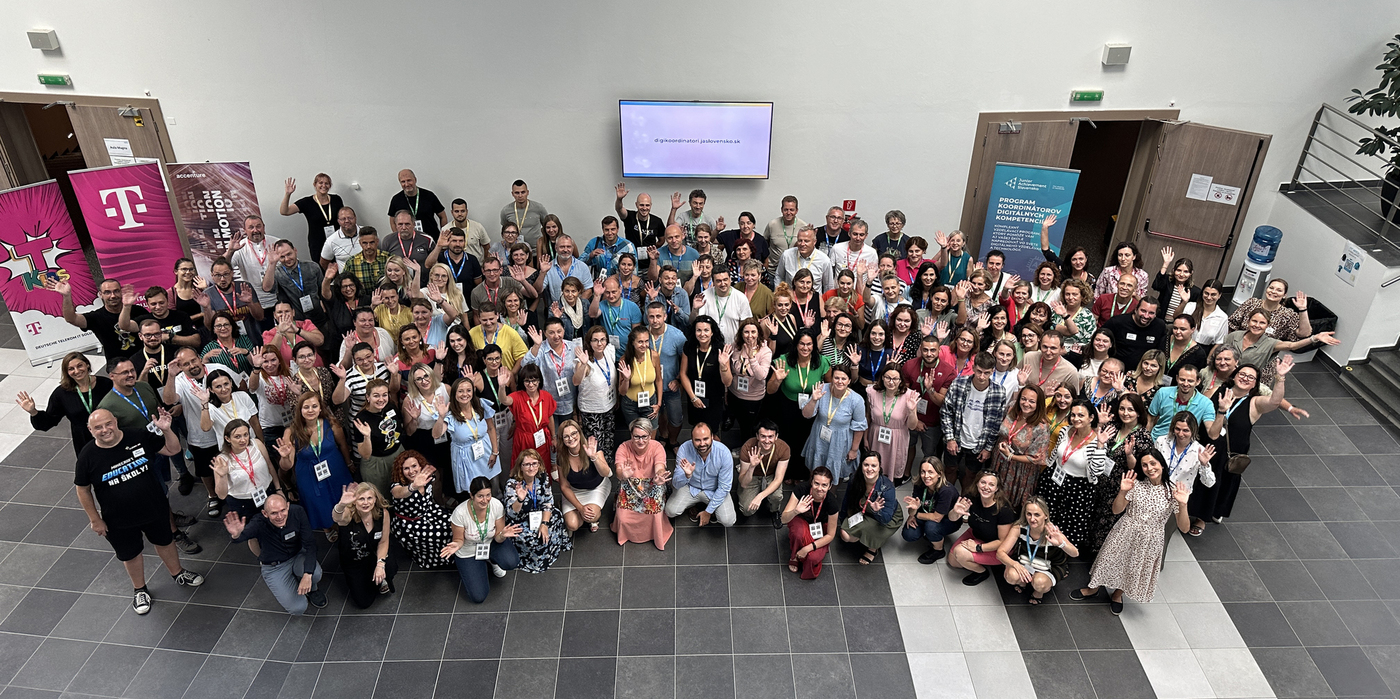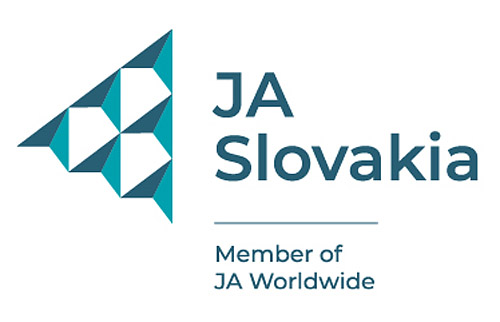The “Digital Competencies For Teachers“ (DCFT) training program provides accredited, innovative training for teachers in primary and secondary schools. This program is recognized by the National Project Support for Helping Professions POP-3 2023.
Teachers can choose from various educational topics, such as programming through code.org and micro:bit, the use of artificial intelligence in teaching, the use of Microsoft 365 software as a collaborative and communication tool in teaching, project-based learning process including EduScrum method, digital safety of young people, using the interactive apps in educational process - Canva, Slido, Kahoot, STEM and LEGO robotics, 3D modeling and printing, the academy of virtual Slovakia or the development of soft skills.
“Digital skills are key to employment in today’s rapidly changing job market. In a world where digitalization touches almost every sector, they enable young people not only to adapt to technological changes but also to take advantage of new opportunities - whether in the IT sector, in remote work, or in building their own businesses. Investing in the development of these skills is an investment in the future that opens doors to success both at home and globally,” said Marta Slováková, CEO of Junior Achievement Slovakia.
The educational program is also specific due to the involvement of enthusiastic and innovative teachers who not only actively use it but also help to constantly improve it. Two active teachers are Mgr. Lenka Paseková, director of the Primary School in Zákopčie, and ThLic. Dominika Komišaková, a teacher of informatics and religion at the Church Primary School of St. John the Baptist in Sabinov. Both are among the graduates of the first year of the innovative DCFT education, which took place in 2021/2022. We approached both teachers to ask about their experiences, perspectives on education, and the challenges they face in their practice.
***
What are the biggest advantages and challenges of the current education system in the field of digital skills?
Lenka Paseková: I see it as a positive that schools are better equipped with modern technologies, allowing for personalized learning tailored to each student’s needs. The challenge lies in ensuring the security of these systems and enhancing the digital literacy of teachers.
Dominika Komišaková: The biggest challenge is undoubtedly to keep up with the rapid pace of technological development and its implementation in the teaching process, especially for teachers in smaller, more remote schools. The advantages? Saving time, modernizing teaching methods, fostering creativity, and above all, keeping up with the times and speaking the language of young people.
How do you perceive students’ interest in digital technologies after completing the program?
Lenka Paseková: The program significantly increased students’ interest in learning by showing them how they can apply their knowledge in practical projects. Gamification further motivated them and improved their results.
Dominika Komišaková: Teachers who complete this program acquire new skills and inspiration for their work. Thanks to the opportunities offered by the program, such as gamification and project-based learning, teachers can motivate students and improve the quality of education.
How do you think the DKPU program prepares students for future careers in the digital world?
Lenka Paseková: The program provides students with key digital skills such as programming, data analysis, effective use of digital tools, and cybersecurity. It also fosters creativity, problem-solving, and adaptability in students.
Dominika Komišaková: Digital competencies are essential for the future careers of students. The 21st century cannot function without digital skills, including digital security. Through the educational program, students develop critical thinking, digital safety, teamwork, creativity, and presentation skills.

***
Who is behind the educational program?
Junior Achievement (JA) Slovakia is a non-profit educational organization that has been helping teachers develop entrepreneurial thinking, financial literacy, and skills necessary for the job market in elementary and secondary school students, including digital skills, for over 30 years. JA Slovakia is part of the global network of 115 JA Worldwide countries and part of the network of 41 European JA Europe countries. The global organization JA Worldwide has been nominated for the Nobel Peace Prize three times for developing young people around the world. Furthermore, for the fourth consecutive year, it has been among the top ten most significant non-governmental organizations in the world.
About the program
The main partners of the Digital Competencies for Teachers educational program are Accenture and Ministry of Education, Research, Development and Youth of the Slovak Republic, joined by corporate partners such as Aricoma, AT&T, ČSOB, Deutsche Telekom IT Solutions, DXC Technology, ESET, Microsoft, Orange, SK-NIC, Telekom, Zurich Insurance. If you are interested in collaborating on the educational program, please contact the program manager, Linda Sombatiová, at digikoordinatori@jaslovensko.sk.
For more information about the DCFT program, visit www.dielkoordinatori.jaslovenskosk.sk.
Junior Achievement (JA) Slovakia



Follow us